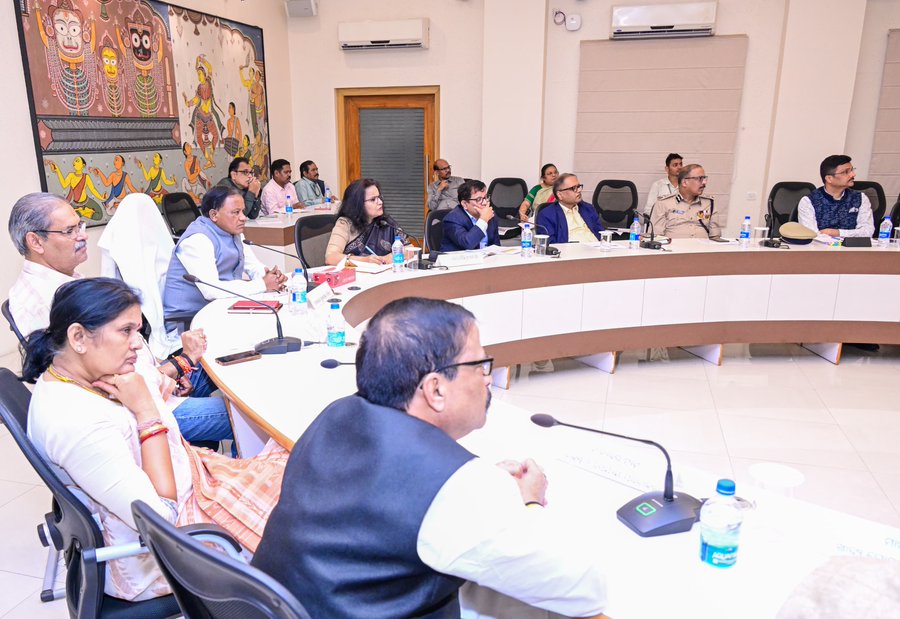Bhubaneswar: Odisha Chief Minister Mohan Charan Majhi has instructed officials to maintain strict vigilance over middlemen during the ongoing paddy procurement process at mandis across the state. The directive was issued during a review meeting on paddy procurement, where the Chief Minister emphasized the importance of transparency and farmer welfare.
In his address, Chief Minister Majhi highlighted that the government has been actively working to financially empower farmers through various schemes, including the PM Kisan and CM Kisan schemes. Under these schemes, Rs. 800 per quintal is provided as input assistance to ensure farmers receive fair returns for their produce. Over 17 lakh farmers are expected to benefit from this financial support.
“Officials must ensure that the paddy procurement process is transparent and free from the exploitation of middlemen,” said Majhi. He also directed the provision of essential amenities such as drinking water, toilets, canteens, and reliable power supply at mandis to ensure that farmers do not face any difficulties during their visits.
The ongoing kharif paddy procurement is currently active in nine districts: Bargarh, Nuapada, Sambalpur, Kalahandi, Balangir, Jharsuguda, Nabarangpur, Subarnapur, and Koraput. As of now, a total of 1,81,196 metric tonnes of paddy has been procured from 37,079 registered farmers in these districts.
The government has disbursed Rs. 323.73 crore as minimum support price (MSP) and an additional Rs. 112.61 crore as input assistance for the procured paddy. This financial support is crucial in helping farmers manage their costs and invest in future agricultural activities.
The review meeting also marked six months of the BJP government in Odisha, with Chief Minister Majhi reaffirming his administration’s commitment to farmer welfare and efficient governance. He emphasized that the government is dedicated to improving the livelihoods of farmers and ensuring they receive fair value for their produce.





